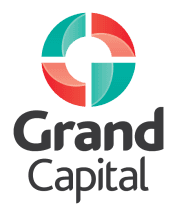Binary Options Jargon You Should Know
Binary Options Jargon You Should Know. The following are some basic trading terms that you’ll likely hear as you enter the world of binary options.
Call Option: An agreement between a buyer and seller that gives the buyer of the call the right to buy an underlying financial instrument at a specific price and time. In simplest terms, a call option is bought by traders expecting an asset to rise in value (above the strike price) before the option expires.
With traditional options, how much you lose or make is determined by the cost of the option (cost of option is the maximum loss) and how far the market moves above the strike price. With binary options, risk is limited to the amount invested, and profits are set at a specific amount regardless of how far the underlying asset moves above the strike price.
Put Option: An agreement between a buyer and seller that gives the buyer of the put the right to sell an underlying financial instrument at a specific price and time. In simplest terms, a put option is bought by traders expecting an asset to fall in value (below the strike price) before the options expires.
With traditional options, how much you lose or make is determined by the cost of the option (cost of option is the maximum loss) and how far the market moves below the strike price. With binary options, risk is limited to the amount invested, and profits are set at a specific amount regardless of how far the underlying asset moves below the strike price.
Binary Options Jargon You Should Know
Underlying Instrument: An asset upon which an option is structured. Currency pairs, stocks and commodities are examples of underlying assets upon which options contracts are based.
At the Money: Refers to a situation in which an option’s strike price is the same price as the underlying instrument. For instance, if you buy an S&P 500 option with a 1500 strike price, and the S&P500 is currently trading at 1500, your option is “at the money” or “ATM”.
Refund: When the amount invested on a trade is returned to the client because the option expired at the money (ATM)–a rare occurrence.
Out of the Money: Refers to a situation where the strike price is above the underlying futures contract price for a call option, or below the underlying futures contract price for a put option.
If the S&P 500 futures are trading at 1500, a call option is out of the money (OTM) if the strike price is above 1500.
If the S&P 500 futures are trading at 1500, a put option is out of the money (OTM) if the strike price is below 1500.
In the Money: A position where binary options traders want to be in, as in the money (ITM) means the position is profitable. It refers to a situation where the strike price is below the underlying futures contract price for a call option, or above the underlying futures contract price for a put option.
If the S&P 500 futures are trading at 1500, a call option is in the money (ITM) if the strike price is below 1500.
If the S&P 500 futures are trading at 1500, a put option is in the money (ITM) if the strike price is above 1500.
Payout: The percentage return on our investment if end up ITM.
Digital or Binary Option: An option with fixed risk and payouts based on whether the trader correctly chooses whether a financial instrument will finish above (call) or below (put) a certain strike price.
Strike Price: A price accepted at the outset of the trade which will determine if you end up ITM or OTM when the binary option expires.
Option Expiry: The time at which an option expires; this could be 60 seconds or weeks from now.
Early Closure: The ability to close an option before the official expiry time. Not all binary options brokers offer this, and there may be some fee associated with early closures.
Expiry Level: The price of the underlying instrument at the time of option expiry. For example, if the expiry level is above the strike price of a call option, the option is ITM and you get paid.
Market Price: The current real-world price of the underlying financial instrument.
Binary Options Jargon You Should Know
2 Responses to “Binary Options Jargon You Should Know”
Leave a Reply
DISCLAIMER
- Deriv offers complex derivatives, such as options and contracts for difference (“CFDs”). These products may not be suitable for all clients, and trading them puts you at risk. Please make sure that you understand the following risks before trading Deriv products: a) you may lose some or all of the money you invest in the trade, and b) if your trade involves currency conversion, exchange rates will affect your profit and loss. You should never trade with borrowed money or with money that you cannot afford to lose.
- Binary options are prohibited in EEA
- Please be advised that certain products and/or multiplier levels may not be available for traders from EEA countries due to legal restrictions
Articles and Trading Tips
- Binary Options Free Contests and Tournaments Brokers List
- What is a risk free trade?
- Forex No Deposit Bonuses
- Binary Options No Deposit Bonus Brokers List
- Binary Options Low Minimum Deposit Brokers List
- Forex Low Minimum Deposit Brokers List
- Binary Options Trading USA Customers Welcome Brokers List
- Binary Options Free Demo Account Without Deposit Brokers List























hi
from this article i learned many new binary options words
tks
now trade with free money with one from our binary options no deposit bonus broker